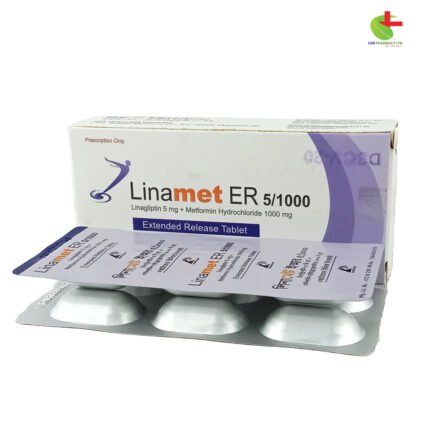Neurocet 250
400.00৳ Strip(10)
- Neurocet is an anticonvulsant medication used for the treatment of partial-onset seizures, myoclonic seizures, and primary generalized tonic-clonic seizures.
- It is indicated for adults, adolescents, and pediatric patients, depending on age and condition.
- The drug works by inhibiting abnormal brain activity, preventing seizure propagation.
- Neurocet is available as tablets and oral solution, with dosing adjustments for age, weight, and renal function.
 Brand
Brand
|
Incepta Pharmaceuticals Ltd |
|---|---|
 Generics
Generics
|
Levetiracetam |
 Type
Type
|
Tablet |
Indications
Neurocet is prescribed as a monotherapy for managing partial-onset seizures—with or without secondary generalization—in adults and adolescents (16 years and older) who are newly diagnosed with epilepsy. Neurocet is also indicated as an adjunctive treatment:
- For partial-onset seizures (with or without secondary generalization) in adults, adolescents, children, and infants (from 1 month old) with epilepsy.
- For myoclonic seizures in adults and adolescents (12 years and older) with Juvenile Myoclonic Epilepsy.
- For primary generalized tonic-clonic seizures in adults and adolescents (12 years and older) with Idiopathic Generalized Epilepsy.
Note: Always follow a registered healthcare professional’s guidance when using Neurocet.
Description
The exact mechanism by which Neurocet provides its antiepileptic effects remains unclear. It demonstrated minimal activity during submaximal stimulation and threshold tests, yet it effectively prevented secondarily generalized seizures caused by focal seizures triggered by pilocarpine and kainic acid—two convulsants that produce seizure patterns resembling human complex partial seizures with secondary generalization.
In studies of epileptiform activity in the hippocampus, Neurocet was found to inhibit burst firing without affecting normal neuronal excitability. This suggests that Neurocet may selectively prevent hyper-synchronization of burst firing and the spread of seizure activity.
Dosage
- Adults and adolescents (16 years and older):
- Start with 250 mg twice daily, increasing to 500 mg twice daily after two weeks.
- Dose adjustments can be made by increasing 250 mg twice daily every two weeks, based on clinical response, up to a maximum of 1500 mg twice daily.
- Adults (≥18) and adolescents (12–17 years) weighing 50 kg or more:
- Begin with 500 mg twice daily.
- Based on clinical response and tolerability, the dose may be increased up to 1,500 mg twice daily in 500 mg increments every 2-4 weeks.
- Pediatric population:
- Oral solution is preferred for children under 6 years old and for children weighing less than 25 kg, as the tablet form is not suitable for this group.
- For children weighing 25 kg or more, starting with 250 mg twice daily is recommended, with a maximum dose of 750 mg twice daily.
- Infants (1 month to 6 months): Use the oral solution.
Note: Always consult a healthcare professional before adjusting the dosage.
Administration
Take Neurocet film-coated tablets orally, with sufficient liquid. It can be taken with or without food. The daily dose is divided into two equal doses.
Interaction
- Antiepileptic Drugs: Neurocet does not affect the serum concentrations of other common antiepileptic drugs (e.g., phenytoin, carbamazepine, and valproic acid), nor do these drugs affect Neurocet’s pharmacokinetics.
- Probenecid: When taken alongside probenecid, the renal clearance of Neurocet’s primary metabolite may be inhibited, though the concentration remains low.
- Methotrexate: Concurrent use with Neurocet may reduce methotrexate clearance, possibly leading to toxic blood levels. Close monitoring is advised.
- Laxatives: The effectiveness of Neurocet may be reduced if taken with macrogol (osmotic laxative). It’s recommended not to take macrogol one hour before or after Neurocet.
- Food and Alcohol: Food does not significantly alter the absorption of Neurocet, but the rate of absorption may be slightly reduced. No data is available regarding its interaction with alcohol.
Contraindications
- Hypersensitivity to the active ingredient, pyrrolidone derivatives, or any excipients in Neurocet.
Side Effects
Common side effects in adults include somnolence, asthenia, infection, and dizziness. In pediatric patients, side effects may include fatigue, aggression, nasal congestion, reduced appetite, and irritability.
Pregnancy and Lactation
- Pregnancy: Neurocet should not be used during pregnancy unless necessary and after consulting a healthcare provider.
- Breastfeeding: Neurocet passes into breast milk, so breastfeeding is not recommended. If treatment is essential, weigh the benefits and risks carefully.
Precautions and Warnings
- Renal Impairment: Dose adjustments may be required for individuals with impaired renal function.
- Acute Kidney Injury: Rare cases of kidney injury have been associated with Neurocet.
- Blood Cell Counts: Regular monitoring is advised as rare blood count reductions have been observed, particularly during the initial stages of treatment.
- Suicide Risk: Like other antiepileptic drugs, Neurocet has been linked to an increased risk of suicidal thoughts and behaviors. Close monitoring for signs of depression and suicidal ideation is recommended.
- Special Populations:
- Elderly (65 and older): Dose adjustments are necessary for those with compromised renal function.
- Hepatic Impairment: No adjustment is needed for mild to moderate impairment, but a reduction in dose is recommended for severe impairment.
Overdose Effects
Overdose symptoms may include somnolence, agitation, aggression, respiratory depression, and coma. In the event of overdose, symptomatic treatment and possibly hemodialysis are recommended. There is no specific antidote for Neurocet.
Therapeutic Class
Adjunctive anti-epileptic medication.
Storage Conditions
Store Neurocet in a cool, dry place (below 25°C), away from light.













Reviews
There are no reviews yet.